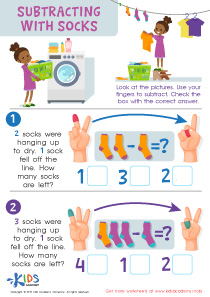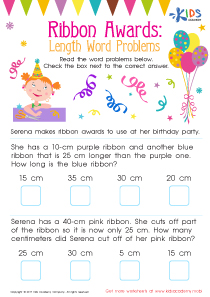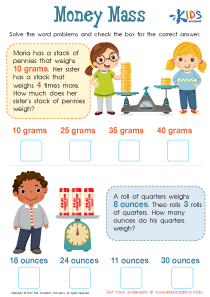Basic Addition Kindergarten Addition and Subtraction Word Problems Worksheets
5 filtered results
-
From - To
Welcome to our Basic Addition Kindergarten Worksheets page, where young learners dive into the world of math through engaging addition and subtraction word problems! Designed specifically for kindergarten students, these worksheets promote foundational skills in mathematics while fostering critical thinking. Each problem encourages children to visualize scenarios, enhancing their understanding of numbers in real-life contexts. With colorful illustrations and age-appropriate language, these worksheets make learning fun and interactive. Perfect for classroom use or at home, our printable resources support teachers and parents in guiding children as they develop confidence in their arithmetic abilities. Get started and inspire little mathematicians today!
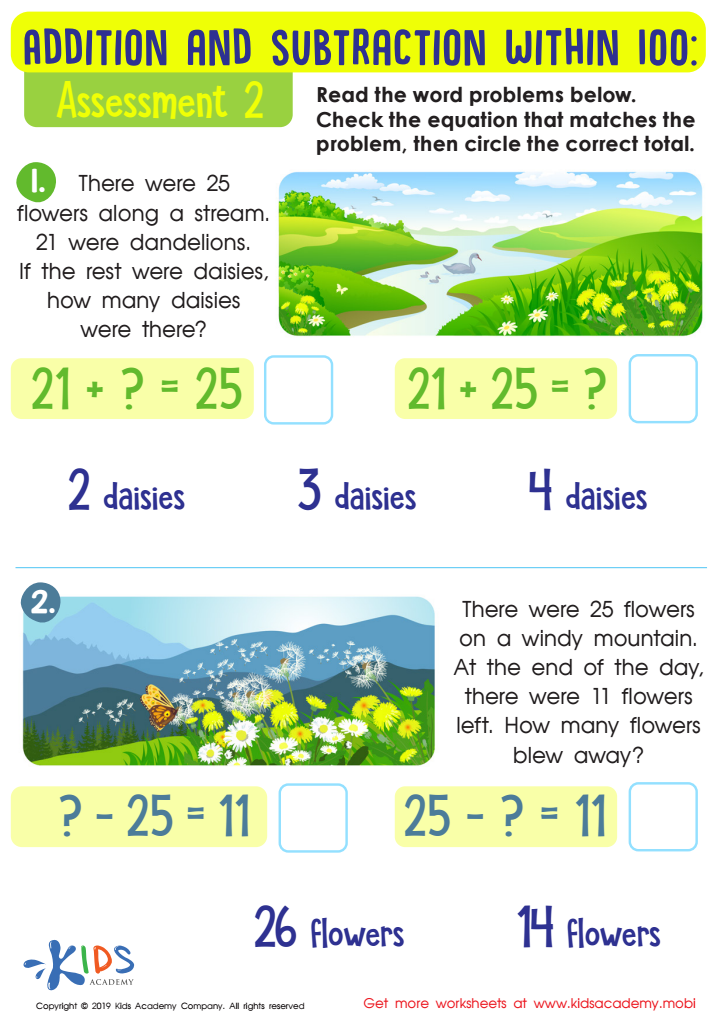

Assessment 2 Math Worksheet
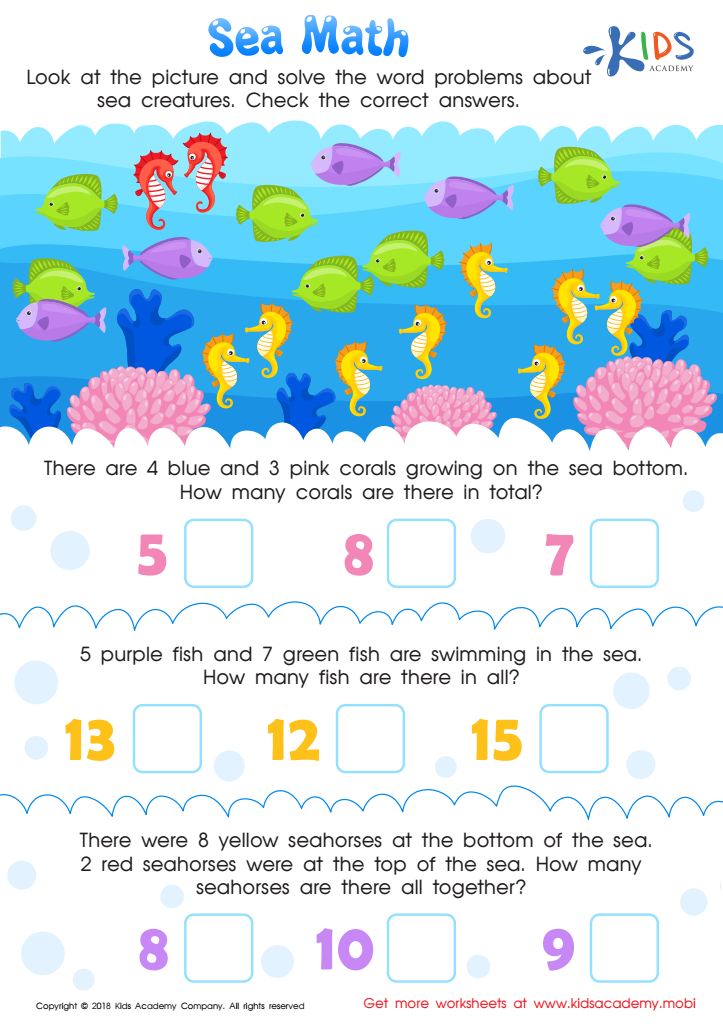

Sea Math Worksheet
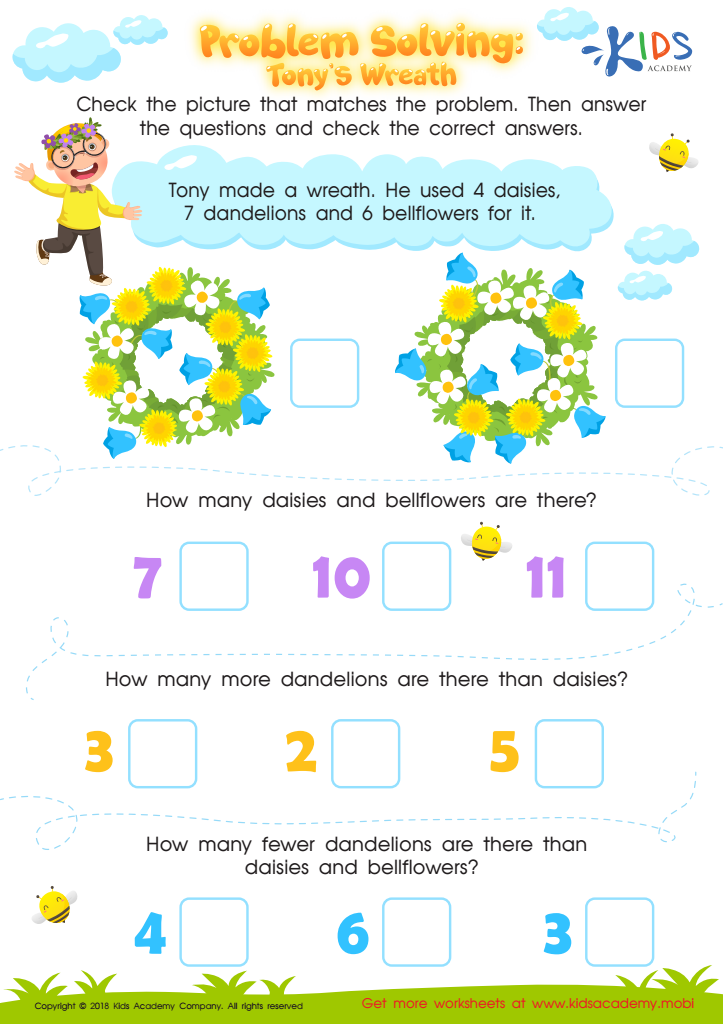

Problem Solving: Tony's Wreath Worksheet
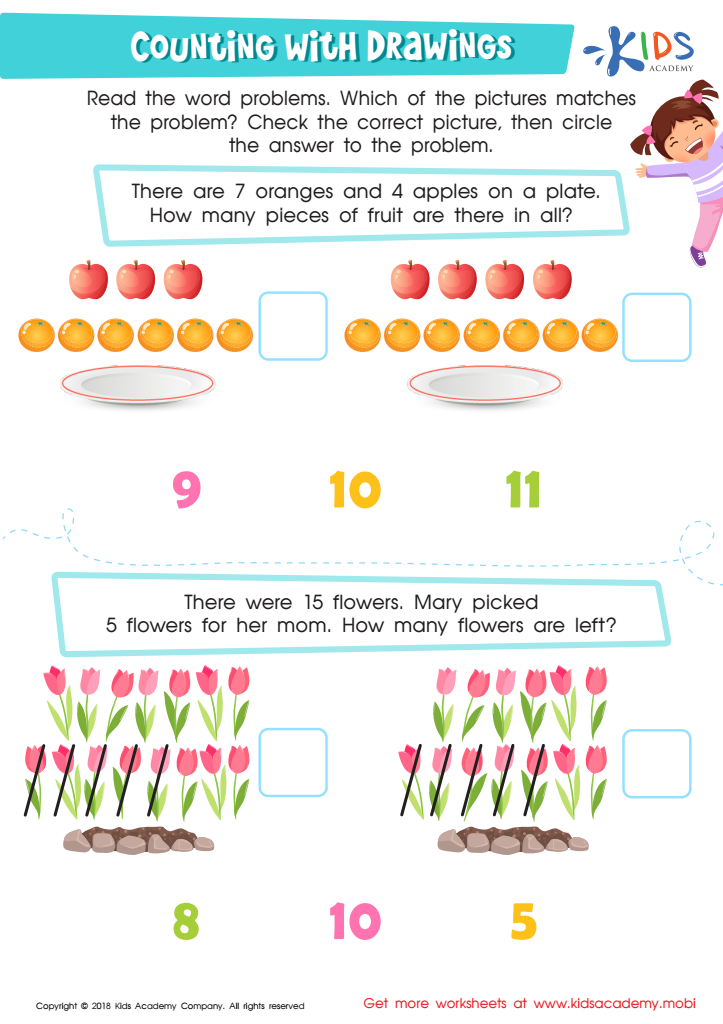

Counting with Drawings:Fruits & Flowers Worksheet
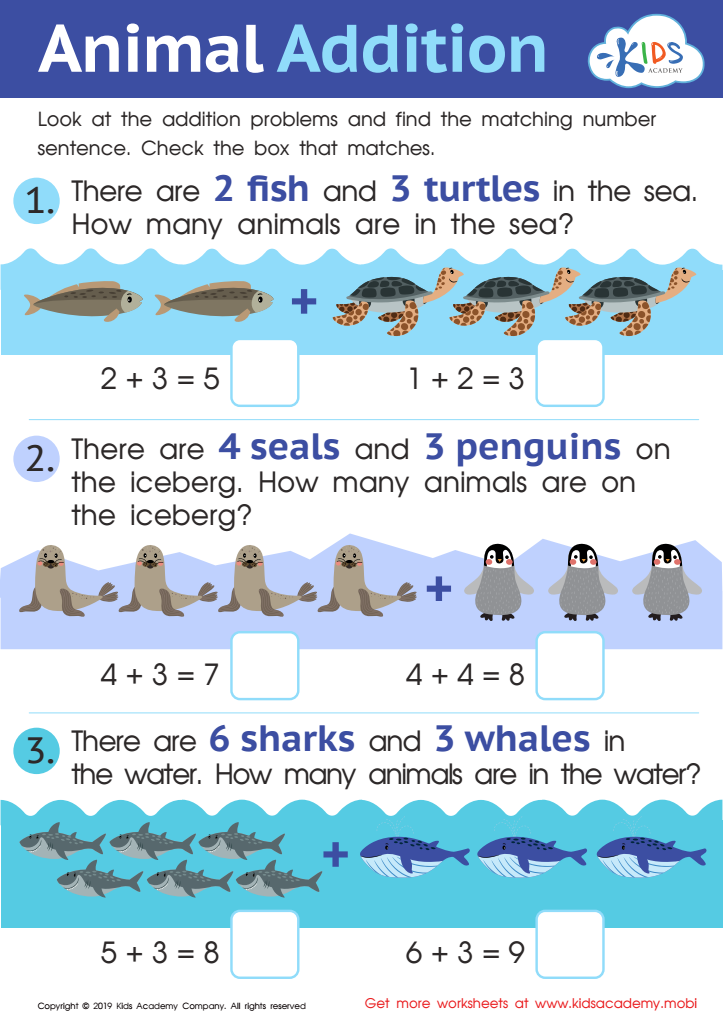

Animal Addition Worksheet
Parents and teachers should prioritize basic addition and subtraction word problems in Kindergarten because they are foundational skills that support young children's mathematical development. Early exposure to these concepts helps children build a solid understanding of numbers and operations, fostering their ability to solve real-world problems.
Word problems encourage critical thinking and comprehension skills, as children learn to interpret language and translate it into mathematical expressions. This process enhances not only their arithmetic skills but also their verbal reasoning and communication abilities.
Additionally, mastering basic addition and subtraction lays the groundwork for more advanced mathematical concepts they will encounter later in their education. Engaging in word problems promotes a sense of relevance and curiosity, as children begin to see the application of math in everyday situations, making learning engaging and enjoyable.
Moreover, when parents are involved in their children's learning through activities related to word problems, it strengthens the home-school connection and reinforces the importance of education. This collaborative approach helps foster a positive attitude toward math and learning in general, which can influence children's long-term academic success. In essence, by focusing on these foundational skills, caregivers help cultivate confident and capable learners prepared for future challenges in mathematics.
 Assign to My Students
Assign to My Students













